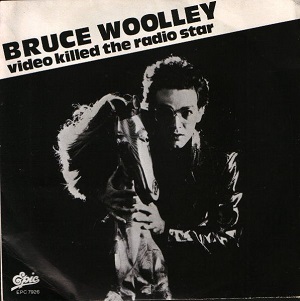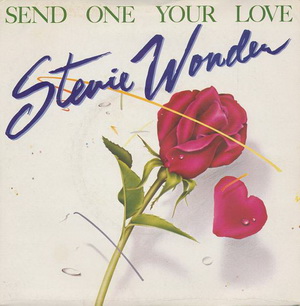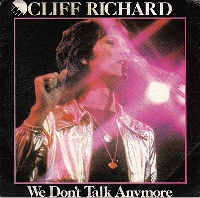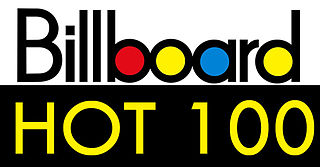
"Crazy Little Thing Called Love" is a song by the British rock band Queen. Written by Freddie Mercury in 1979, the track is included on their 1980 album The Game, and also appears on the band's compilation album, Greatest Hits in 1981. The song peaked at number two in the UK Singles Chart in 1979, and became the group's first number-one single on the Billboard Hot 100 in the US in 1980, remaining there for four consecutive weeks. It topped the Australian ARIA Charts for seven weeks.

"Video Killed the Radio Star" is a song written by Trevor Horn, Geoff Downes and Bruce Woolley in 1978. It was first recorded by Bruce Woolley and the Camera Club for their album English Garden. A more widely known version of the song was recorded later by British new wave/synth-pop group the Buggles, which consisted of Horn and Downes.

"I Will Survive" is a song first performed by American singer Gloria Gaynor, released in October 1978. It was written by Freddie Perren and Dino Fekaris. A top-selling song, it is a popular disco anthem, as well as being certified Platinum by the Recording Industry Association of America (RIAA).

"1979" is a song by American alternative rock band the Smashing Pumpkins. It was released in 1996 as the second single from their third studio album, Mellon Collie and the Infinite Sadness. "1979" was written by frontman Billy Corgan, and features loops and samples uncharacteristic of previous Smashing Pumpkins songs. The song was written as a nostalgic coming of age story by Corgan. In the year 1979, Corgan was 12 and this is what he considered his transition into adolescence.

"Don't Stop 'Til You Get Enough" is a single written and recorded by American singer Michael Jackson. Released under Epic Records on July 10, 1979, the song is the first track on Jackson's fifth studio album Off the Wall (1979). It was the first solo recording over which Jackson had creative control.
Bubbling Under Hot 100 Singles is a chart published weekly by Billboard magazine in the United States. The chart lists the top songs that have not yet charted on the main Billboard Hot 100. Chart rankings are based on radio airplay, sales, and streams. In its initial years, the chart listed 15 positions, but expanded to as many as 36 during the 1960s, particularly during years when over 700 singles made the Billboard Hot 100 chart. From 1974 to 1985, the chart consisted of 10 positions; since 1992, the Bubbling Under Hot 100 Singles chart has listed 25 positions.

"Heart of Glass" is a song by the American new wave band Blondie, written by singer Debbie Harry and guitarist Chris Stein. It was featured on the band's third studio album, Parallel Lines (1978), and was released as the album's third single in January 1979 and reached number one on the charts in several countries, including the United States and the United Kingdom.

"Knock on Wood" is a 1966 hit song written by Eddie Floyd and Steve Cropper and originally performed by Floyd. The song has become covered by later artists, most notably Amii Stewart in 1979. Stewart's disco version was the most successful on weekly music charts.

"Love You Inside Out" is a 1979 hit single by the Bee Gees from their album, Spirits Having Flown. It reached number one on the Billboard Hot 100 for one week in June 1979, interrupting Donna Summer's "Hot Stuff", becoming the third single from the album to do so. In the UK, the single peaked at No. 13 for two weeks. It was the ninth and final number-one hit for the Bee Gees in the US. The trio would not return to the top 10 for ten years, with the song, "One".

"Ring My Bell" is a 1979 disco song written by Frederick Knight. The song was originally written for then eleven-year-old Stacy Lattisaw, as a teenybopper song about kids talking on the telephone. When Lattisaw signed with a different label, Anita Ward was asked to sing it instead, and it became her only major hit.
Billboard Year-End charts are a cumulative measure of a single or album's performance in the United States, based upon the Billboard magazine charts during any given chart year. Billboard's "chart year" runs from the first Billboard "week" of December to the final week in November, but because the Billboard week is dated in advance of publication, the last calendar week for which sales are counted is usually the third week in November. This altered calendar allows for Billboard to calculate year-end charts and release them in time for its final print issue in the last week of December.

"Pop Muzik" is a 1979 song by M, a project by English musician Robin Scott, from the debut album New York • London • Paris • Munich. The single, first released in the UK in early 1979, was bolstered by a music video that was well received by critics. The clip featured Scott as a DJ singing into a microphone from behind an exaggerated turntable setup, at times flanked by two female models who sang and danced in a robotic manner. The video also featured Brigit Novik, Scott's wife at the time, who provided the backup vocals for the track.

"Hot Stuff" is a song by American singer Donna Summer from her seventh studio album Bad Girls (1979), produced by English producer Pete Bellotte and Italian producer Giorgio Moroder and released as the lead single from Bad Girls in 1979 through Casablanca Records. Up to that point, Summer had mainly been associated with disco songs but this song also showed a significant rock direction, including a guitar solo by ex-Doobie Brother and Steely Dan guitarist Jeff "Skunk" Baxter. It is the second of four songs by Summer to reach number one on the Billboard Hot 100.

"Send One Your Love" is a 1979 soul single by American and Motown musician and singer Stevie Wonder from his album Stevie Wonder's Journey Through "The Secret Life of Plants" (1979). Released in November 1979 as the album's lead single, the song reached number four on the US Billboard pop singles chart in 1979 The song also became Wonder's second single to top the adult contemporary chart, following 1973's "You Are the Sunshine of My Life", topping the chart for four weeks. On the soul charts, "Send One Your Love" went to number five.

"We Are Family" is a song recorded by American vocal group Sister Sledge. Composed by Bernard Edwards and Nile Rodgers, they both offered the song to Atlantic Records; although the record label initially declined, the track was released as a single from the album of the same name in April 1979 and began to gain club and radio play, eventually becoming the group's signature song.

"We Don't Talk Anymore" is a song recorded by Cliff Richard that reached number one in the UK Singles Chart in August 1979, remaining there for four weeks. Produced by The Shadows' rhythm guitarist, Bruce Welch, and written by Alan Tarney, it was Cliff Richard's tenth UK number one and his first since "Congratulations" in 1968.

"What a Fool Believes" is a song written by Michael McDonald and Kenny Loggins. The best-known version was recorded by The Doobie Brothers for their 1978 album Minute by Minute. Debuting at number 73 on January 20, 1979, the single reached number one on the Billboard Hot 100 on April 14, 1979 for one week. The song received Grammy Awards in 1980 for both Song of the Year and Record of the Year.

This is a list of Billboard magazine's Top Hot 100 songs of 1979. The Top 100, as revealed in the year-end edition of Billboard dated December 22, 1979.















